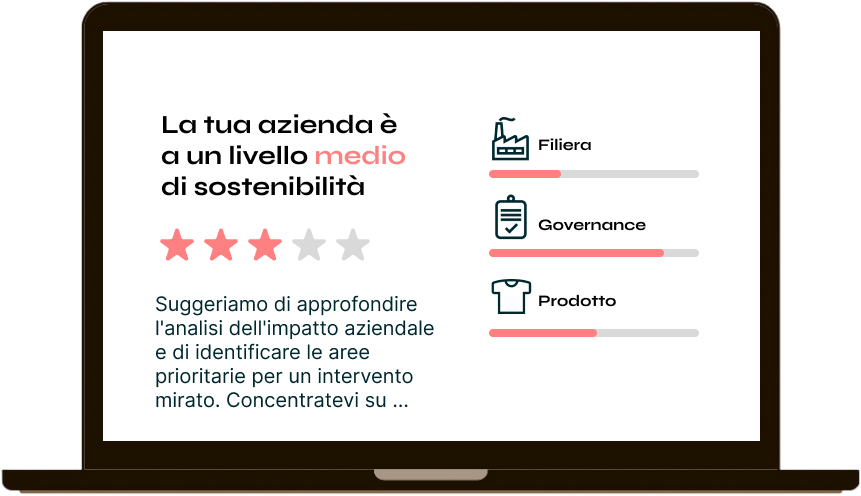GOTS certification: what it is and why to choose it
GOTS (Global Organic Textile Standard), together with OCS (Organic Content Standard), is one of the best known and recognized certifications in global markets to ensure that textile fibers (of plant or animal origin) have been grown organically. The final products certified by GOTS can include fibers, yarns, fabrics, clothes, but also textiles for furniture and more. In 2020, the number of GOTS certified facilities grew by 34% globally, with more than 10,000 certified partners. In Italy, today there are 585. Choosing this certification is a strategic move to remain competitive and in this article we will explain why.
GOTS certification: why it matters
Crops and livestock are a huge source of supply for the fashion industry, accounting for around 31% of global fiber production in 2019. With the use of GMOs, pesticides, and large quantities of water, conventional farming and cultivation methods for the production of textile fibers can pose serious risks to the health of workers and consumers, as well as to animal and environmental welfare. Their major consequences include the loss of soil biodiversity, chemical pollution of air and water, and huge consumption of resources. On the contrary, it has been studied how the organic method – with its prohibitions and limitations of harmful substances – brings advantages in reducing environmental pollution compared to conventional agriculture. Choosing organic raw materials is one of the elements that can reduce the negative impacts of the textile sector. In this sense, however, it is essential to rely on an international standard guaranteeing the origin of the product. One of these is the GOTS certification.
GOTS certification: its advantages for companies
Choosing the GOTS certification provides company with many advantages:
- Broad-spectrum guarantee: GOTS products involve not only the guarantee of the organic origin of the product, but also that of responsible processing, covering the entire supply chain, from production to trade and thus increasing the reliability of the company for final consumers.
- Social responsibility: GOTS establishes requirements in terms of working and social conditions equivalent to those of the main social sustainability standards. In this way, the protection of the health and rights of employees is also guaranteed, increasing the overall sustainability level of the company. The cultivation phase is protected by national standards of organic agriculture and farming which guarantee compliance with all the rules governing labor and human rights.
- Cleaner chemical outputs: from an environmental point of view, GOTS follows a Manufacturing Restricted Substance List (MRSL), which is a list of substances prohibited for use during production processes. It is first-level compliant with the ZDHC standard, which is increasingly requested by buyers and consumers. We talked about it here.
- Support in environmental management: certified bodies have access to a service to collect data on water and energy consumption (per kg of textile product), allowing them to control environmental management and wastewater treatment, fundamental aspects for reducing business’ impacts.
- Simplification: GOTS certification simplifies the management of the entire supply chain, reducing costs for companies that no longer have to deal with tracking it themselves.
- Better Risk Management: verified by independent certification bodies, GOTS certification is a risk management tool for buyers.
The GOTS logo can only be applied to the final product if all its stages meet the GOTS criteria, therefore everyone, from fabric producers to sellers, must be certified. However, this does not prevent companies from buying a GOTS yarn or fabric and then following non-certified finishing and manufacturing processes, as long as the product is not falsely declared GOTS. However, this ensures the company precise guarantees on the social and ethical criteria of supply, as well as on the biological origin of the fibers, giving certainty to the final consumer.
Ultimately, adopting GOTS certification is a strategic move to differentiate your company, opening up access to new markets (such as public tenders), ensuring added value to your products, and positioning yourself as a market innovator.
The difference between GOTS and other certifications
BCI (Better Cotton Initiative)
Born thanks to a series of WWF round tables in 2005, the BCI (Better Cotton Initiative) was supported by brands such as Adidas, Gap, H&M, and IKEA and is based on six pillars: the elimination of some pesticides and the prohibition of their use to minors and vulnerable people; more efficient use of water resources; the healthiness of the soil; conservation of natural habitats; the quality of the fiber and the dignity of the workers. Unlike GOTS, however, the use of GMOs is allowed and some pesticides are tolerated. At the same time, the conservation of natural habitats does not include obligations exceeding compliance with national laws. For these reasons, it was considered weaker than the GOTS certification, as stated by Changing Markets Foundation in this 2018 report.
OCS (Organic Content Standard)
The Organic Content Standard is promoted internationally by Textile Exchange, one of the most important international non-profit organizations for responsible and sustainable development in the textile sector. This certification also provides for the release of an environmental declaration verified by a third party which ensures the content of natural fibers from organic farming in textile products, both intermediate and finished, as well as the maintenance of traceability throughout the entire production process. Specifically, there are three different logos corresponding to three different declarations of conformity, according to which the products can contain 100% certified organic fibers, at least 95%, or from 5% to 95%. GOTS products, on the other hand, can be “organic” with a minimum of 95% of organic fibers, or “made with organic materials”, requiring at least 70% of organic fibers. Likewise, the qualitative requirements and safety characteristics from a chemical point of view, as well as the performance and environmental impacts, or the social criteria are not subject to verification.

The limits of GOTS certification: how to face them?
Over the years, questions have been raised about the limits of the organic method, one of which is that of not being able to meet the growing global textile demand. In this sense, for companies, other solutions appear possible. Cikis takes care of guiding them in choosing the eco-sustainable solution that best suits their business needs. One solution is that of regenerative agriculture, carried out – among others – by companies of the caliber of Patagonia, but also by innovative startups such as Trace Collective. Another possible solution is that of using recycled fabrics, pursued – among others – by Berto Industria Tessile, Italian excellence in recycled denim. We interviewed Flavio Berto of Berto Industria Tessile and Antonia Halko of Trace Collective in two episodes of our podcast which will soon be available on Spotify.
Regarding risk management, on the other hand, the GOTS certification bodies undertake to carry out stringent controls on all the supply chains involved. However, scandals can occur such as the one resulting from the discovery by the GOTS accreditation body IOAS of 20.000 tons of cotton falsely passed off as organic, which took place in October 2020 in India. We can therefore say that being or buying certified products certainly represents a guarantee and a differentiating factor, but that in order to have the highest possible degree of safety and avoid reputational scandals, the final solution is to get to know your suppliers and subcontractors in-depth, requesting their signing of a sustainability policy.
Cikis helps companies to be more sustainable by carrying out a complete analysis of their supply chain, through the creation and sending of specific questionnaires to all local and foreign suppliers and verifying the necessary documentation to evaluate individual performances in light of the recognized certifications and according to international standards.
Do you want to carry out a Sustainability Mapping of your supply chain?
Get articles like this and the latest updates on sustainable fashion automatically!
